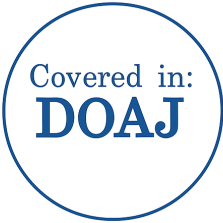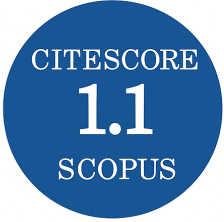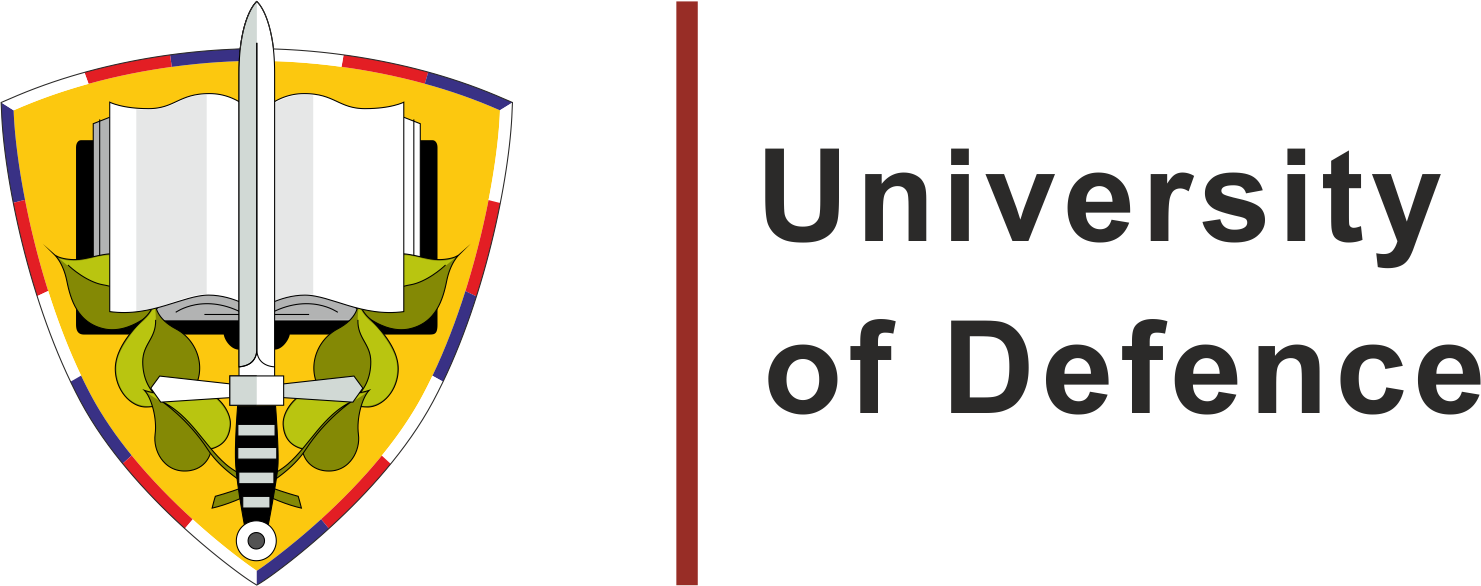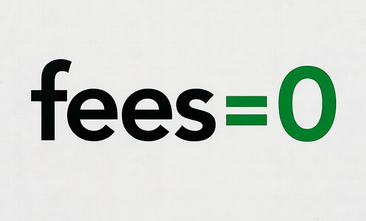Latest Trends in MASINT Technologies for CBRNe Threats
DOI:
https://doi.org/10.3849/aimt.01876Keywords:
CBRNe, MASINT, Intelligence, Security, TechnologyAbstract
The article provides up-to-date information on the latest Measurement and Signature Intelligence (MASINT) technologies to face Chemical, Biological, Radiological, Nuclear and Explosive (CBRNe) threats and their advancements exploitable by Intelligence and security practitioners. The primary emphasis is on CBRNe technologies, given their central role in MASINT. The discussion encompasses cutting-edge developments that exhibit significant potential in enhancing capabilities for the identification and mitigation of CBRNe risks. In addition, the document puts forth a set of recommendations which cover essential improvements and approaches to effectively address various aspects of CBRNe Intelligence. This comprehensive exploration aims to provide readers, including Intelligence and security practitioners, with valuable insights into the evolving landscape of MASINT technologies addressing the unique challenges posed by CBRNe threats.
References
MORRIS, J.L. MASINT. American Intelligence Journal, 1996, 17(1/2), pp. 24-27.
Mapping Report on the Legal, Institutional, and Operative Framework Concerning Response to CBRN Threats in Italy and in other 10 EU Member States [online]. 2014 [viewed 2023-09-26]. Available from: https://www.santannapisa.it/sites/default/files/u39/mapping-report.pdf
Improvised Explosive Device Clearance Good Practice Guide [online]. 2021 [viewed 2023-09-26]. Available from: https://www.gichd.org/fileadmin/uploads/gichd/migration/fileadmin/GICHD-resources/rec-documents/external-documents/Improvised_Explosive_Device_Clearance_Good_Practice_Guide__2021.pdf
C21 The Intelligence Community in the 21st Century - Staff Study Permanent Select Committee on Intelligence [online]. 1996 [viewed 2023-09-26]. Available from: https://www.govinfo.gov/app/details/GPO-IC21/context
NATO Glossary of Terms and Definitions (AAP-6). Brussels: NATO Standardization Office, 2021.
Joint Intelligence, Surveillance and Reconnaissance (JISR) [online]. 2023 [viewed 2023-09-25]. Available from: https://www.nato.int/cps/en/natohq/topics_111830.htm
Operations in Chemical, Biological, Radiological, and Nuclear Environments [online]. 2020 [viewed 2023-09-19]. Available from: https://www.jcs.mil/Portals/36/Documents/Doctrine/pubs/jp3_11.pdf
GONZÁLEZ, G. and Á. SEGUNDO. Trends in the Evolution of Military Intelligence [online]. 2021 [viewed 2023-09-19]. Available from: https://www.ieee.es/Galerias/fichero/docs_opinion/2021/DIEEEO35_2021_ANGGOM_Inteligencia.pdf
FM 2-0 Intelligence [online]. 2010 [viewed 2023-09-19]. Available from: https://irp.fas.org/doddir/army/fm2-0.pdf
PIKE, J. Hyperspectral Imagery [online]. 2002 [viewed 2023-09-19]. Available from: https://irp.fas.org/imint/hyper.htm
Hyperspectral Satellite, Capable of Observing from the Optical to the Near Infrared [online]. 2019 [viewed 2023-09-19]. Available from: https://www.asi.it/en/earth-science/prisma/
National Security Commission on Artificial Intelligence [online]. 2021 [viewed 2023-09-25]. Available from: https://reports.nscai.gov/final-report/
Pushing Limits. Defence Innovation in a High-Tech World [online]. 2021 [viewed 2023-09-16]. Available from: https://eda.europa.eu/docs/default-source/eda-magazine/edm22singleweb.pdf
Emerging and Disruptive Technologies [online]. 2023 [viewed 2023-09-15]. Available from: https://www.nato.int/cps/en/natohq/topics_184303.htm
CE, P., H. SHUCAI, Z. YAN, W. DAOZHI and L. JINCHANG. Sensor Network Disposition Facing the Task of Multisensor Cross Cueing. Mathematical Problems in Engineering, 2017, 2017, 7372013, pp. 1-8. https://doi.org/10.1155/2017/7372013.
Cross Sensor Cueing [online]. [viewed 2023-09-15]. Available from: http://www.killchain.org/h-cross-sensor-cueing.html
Science & Technology Trends 2020-2040 [online]. 2020 [viewed 2023-09-15]. Available from: https://apps.dtic.mil/sti/trecms/pdf/AD1131124.pdf
XINGXIU, C. and Y. ZHIBO. Biosensors for Single-Cell Metabolomic Characterization, In: CHEN, J. and Y. LU, eds. Biosensors for Single-Cell Analysis. Cambridge: Academic Press, 2022, pp. 37-70. ISBN 978-0-323-89841-6.
SFEROPOULOS, R. A Review of Chemical Warfare Agent (CWA) Detector Technologies and Commercial-Off-The-Shelf Items [online]. 2008 [viewed 2023-09-15]. Available from: https://apps.dtic.mil/sti/pdfs/ADA502856.pdf
PACSIAL-ONG, E.J. and P. ZORAIDA. Chemical Warfare Agent Detection: A Review of Current Trends and Future Perspective. Frontiers in Bioscience-Scholar (FBS), 2013, 5(2), pp. 516-543. https://doi.org/10.2741/s387.
Theory and Applications of Direct-Reading Photoionization Detectors [online]. 2013 [viewed 2023-09-05]. Available from: https://epsica.com/archivos/The%20PID%20handbook%20RAE.pdf
JINDAL, M.K., M. MAINUDDIN, S. VEERABUTHIRAN and A.K. RAZDAN. Laser-Based Systems for Standoff Detection of CWA: A Short Review. IEEE Sensors Journal, 2020, 21(4), pp. 4085-4096. https://doi.org/10.1109/JSEN.2020.3030672.
MILMAN, B.L. Chemical Identification and Its Quality Assurance. Heidelberg: Springer, 2011. ISBN 3-642-15361-5.
CAPPELLIN, L. and F. LOPEZ. Monitoring Trace VOCs in Human Breath Emissions with PTR-MS [online]. 2023 [viewed 2023-09-20]. Available from: https://www.tofwerk.com/monitoring-human-breath-emissions-vocs-ptr-ms/
IMAS, J.J. Hyperspectral and Multispectral Imaging [online]. 2021 [viewed 2023-09-16]. Available from: https://www.pyroistech.com/hyperspectral-and-multispectral-imaging/
PRISMA Data Are Now Available for Access [online]. 2023 [viewed 2023-09-25]. Available from: https://sbg.jpl.nasa.gov/news-events/prisma-data-are-now-available-for-access
ISOZAKI, A., J. HARMON, Y. ZHOU, S. LI, Y. NAKAGAWA, M. HAYASHI, H. MIKAMI, C. LEI and K. GODA. AI on a Chip. Lab on a Chip, 2020, 20(17), pp. 3074-3090. https://doi.org/10.1039/d0lc00521e.
PICKERING, P., S. TEWARI and C. TWANOW. Metal Oxide Gas Sensing Material and MEMS Process [online]. 2018 [viewed 2023-09-26]. Available from: https://www.fierceelectronics.com/components/metal-oxide-gas-sensing-material-and-mems-process
WILSON, A.D. and M. BAIETTO. Applications and Advances in Electronic-Nose Technologies. Sensors, 2009, 9(7), pp. 5099-5148. https://doi.org/10.3390/s90705099.
Exploitation Methodologies for Longwave Infrared Airborne Hyperspectral Data [online]. 2021 [viewed 2023-09-26]. Available from: https://www.sto.nato.int/publications/STO%20Technical%20Reports/Forms/DispForm.aspx?ID=4743
High Definition “LACHIˮ Sensor – Award details [online]. 2023 [viewed 2023-09-26]. Available from: https://www.sbir.gov/sbirsearch/detail/1601403
TAYLOR, A.T., E.P.C. LAI. Current State of Laser-Induced Fluorescence Spectroscopy for Designing Biochemical Sensors. Chemosensor, 2021, 9(10), 275. https://doi.org/10.3390/chemosensors9100275.
Polymerase Chain Reaction (PCR) Fact Sheet [online]. 2020 [viewed 2023-09-26]. Available from: https://www.genome.gov/about-genomics/fact-sheets/Polymerase-Chain-Reaction-Fact-Sheet
KOCZULA K.M. and A. GALLOTTA. Lateral Flow Assays. Essays in Biochemistry, 2016, 60(1), pp. 111-120. https://doi.org/10.1042/EBC20150012.
ALHAJJ, M., M. ZUBAI and A. FARHANA. Enzyme Linked Immunosorbent Assay [online]. 2023 [viewed 2023-09-25]. Available from: https://www.ncbi.nlm.nih.gov/books/NBK555922/
KALISZEWSKI, M., M. WŁODARSKI, J. MŁYŃCZAK, M. LEŚKIEWICZ, A. BOMBALSKA, M. MULARCZYK-OLIWA, M. KWAŚNY and D. BULIŃSKI and K. KOPCZYŃSKI. A New Real-Time Bio-Aerosol Fluorescence Detector Based on Semiconductor CW Excitation UV Laser. Journal of Aerosol Science, 2016, 100, pp. 14-25. https://doi.org/10.1016/j.jaerosci.2016.05.004.
Privacy Impact Assessment for the Biological Detection for the 21st Century (BD21) Technology Demonstration (TD) [online]. 2021 [viewed 2023-09-26]. Available from: https://www.dhs.gov/sites/default/files/publications/privacy-pia-cwmd002-cwmdbd21td-july2021.pdf
DHS Biosurveillance Systems [online]. 2021 [viewed 2023-09-26]. Available from: https://www.dhs.gov/sites/default/files/2022-02/S%26T%20and%20CWMD%20-%20DHS%20Biosurveillance%20Systems.pdf
GÓMEZ-GONZALEZ, E., B. FERNANDEZ-MUÑOZ, A. BARRIGA-RIVERA et al. Hyperspectral Image Processing for the Identification and Quantification of Lentiviral Particles in Fluid Samples. Scientific Reports, 2021, 11(1), 16201. https://doi.org/10.1038/s41598-021-95756-3.
GÓMEZ-GONZALEZ, E., A. BARRIGA-RIVERA and B. FERNANDEZ-MUÑOZ. Optical Imaging Spectroscopy for Rapid, Primary Screening of SARS-CoV-2: A Proof of Concept. Scientific Reports, 2022, 12(1), 2356. https://doi.org/10.1038/s41598-022-06393-3.
BUDDEMEIER, B., S. MUSOLINO and G. KLEMIC. Preventive Rad/Nuc Detection Equipment Categorization for Consequence Management [Technical Report]. 2017. https://doi.org/10.2172/1366955.
Handheld Radionuclide Identification Devices [online]. 2019 [viewed 2023-09-26]. Available from: https://www.dhs.gov/sites/default/files/saver_hrid-ar_0219-508.pdf
Introduction to Radiation Detectors [online]. 2023 [viewed 2023-09-25]. Available from: https://www.mirion.com/discover/knowledge-hub/articles/education/introduction-to-radiation-detectors
YANAGIDA, T. Inorganic Scintillating Materials and Scintillation Detectors. Proceedings of the Japan Academy. Series B, Physical and Biological Sciences, 2018, 94(2), pp. 75-97. https://doi.org/10.2183/pjab.94.007.
HARNLY, J. and R. FIELDS. Solid-State Array Detectors for Analytical Spectrometry. Applied Spectroscopy, 1997, 51(9), pp. 334-351. https://doi.org/10.1366/0003702971941971.
Nuclear Detonation (NUDET) Detection System (NDS) [online]. 2001 [viewed 2023-09-25]. Available from: http://www.wslfweb.org/docs/roadmap/irm/internet/surwarn/cat/html/nudetds.htm
RICHELSON, J.T. MASINT: The New Kid in Town. International Journal of Intelligence and CounterIntelligence, 2001, 14(2), pp. 149-192. DOI: 10.1080/088506001300063136.
Remote and Real-Time Optical Detection of Alpha-Emitting Radionuclides in the Environment [online]. 2019 [viewed 2023-09-25]. Available from: https://remotealpha.drmr.nipne.ro/index.php
HANHAM, M., J. LEWIS, C. DILL, G. LIU, J. RODGERS, O. LEPINARD, B. KNAPP, O. HALLAM and B. MCINTOSH. Geo4nonpro 2.0 [online]. 2018 [viewed 2023-09-26]. Available from: https://www.nonproliferation.org/wp-content/uploads/2018/10/op38-geo4nonpro20.pdf
HANHAM, M., C. DILL, J. LEWIS, B. KIM, D. SCHMERLER and J. RODGERS. Geo4nonpro.org: A Geospatial Crowd-Sourcing Platform for WMD Verification [online]. 2017 [viewed 2023-09-25]. Available from: https://www.nonproliferation.org/wp-content/uploads/2017/06/op28-geo4nonpro-org-a-geospatial-crowd-sourcing-platform-for-wmd-verification.pdf
HANHAM, M., G. LIU, J. RODGERS, M. BEST, S. MILNE and O. LEPINARD. Monitoring Uranium Mining and Milling in China and North Korea through Remote Sensing Imagery [online]. 2018 [viewed 2023-09-26]. Available from: https://nonproliferation.org/wp-content/uploads/2018/10/op40-monitoring-uranium-mining-and-milling-in-china-and-north-korea-through-remote-sensing-imagery.pdf
MUHL, C.G.M. Defeating Improvised Explosive Devices (IED): Asymmetric Threats and Capability Gaps [online]. 2011 [viewed 2023-09-26]. Available from: https://apps.dtic.mil/sti/tr/pdf/ADA560177.pdf
Realistic Trace Explosive Test Standard for Evaluation of Optical Sensor in Relevant Scenario [online]. 2022 [viewed 2023-09-26]. Available from: https://www.sto.nato.int/search/Pages/activities_results.aspx?k=REALISTIC%20TRACE%20EXPLOSIVE%20TEST&s=Search%20Activities
DUBROCA, T., G. BROWN and R.E. HUMMEL. Detection of Explosives by Differential Hyperspectral Imaging. Optical Engineering, 2014, 53(2), 021112. https://doi.org/10.1117/1.OE.53.2.021112.
CHAUDHARY, S., S. NINSAWAT and T. NAKAMURA. Non-Destructive Trace Detection of Explosives Using Pushbroom Scanning Hyperspectral Imaging System. Sensors, 2018, 19(1), 97. https://doi.org/10.3390/s19010097.
CBNW [online]. 2023 [viewed 2023-09-26]. Available from: https://nct-cbnw.com/about-cbnw/
MEKKI, K., E. BAJIC, F. CHAXEL and F. MEYER. A comparative study of LPWAN technologies for large-scale IoT deployment. ISCT Express, 2019, 5(1), pp. 1-7. https://doi.org/10.1016/j.icte.2017.12.005.
Downloads
Published
License
Copyright (c) 2024 Advances in Military Technology

This work is licensed under a Creative Commons Attribution-NonCommercial 4.0 International License.
Authors who publish with this journal agree to the following terms:
1. Authors retain copyright and grant the journal right of first publication with the work simultaneously licensed under a Creative Commons Attribution License that allows others to share the work with an acknowledgement of the work's authorship and initial publication in this journal.
2. Authors are able to enter into separate, additional contractual arrangements for the non-exclusive distribution of the journal's published version of the work (e.g., post it to an institutional repository or publish it in a book), with an acknowledgement of its initial publication in this journal.
3. Authors are permitted and encouraged to post their work online (e.g., in institutional repositories or on their website) prior to and during the submission process, as it can lead to productive exchanges, as well as earlier and greater citation of published work.
Users can use, reuse and build upon the material published in the journal for any purpose, even commercially.






